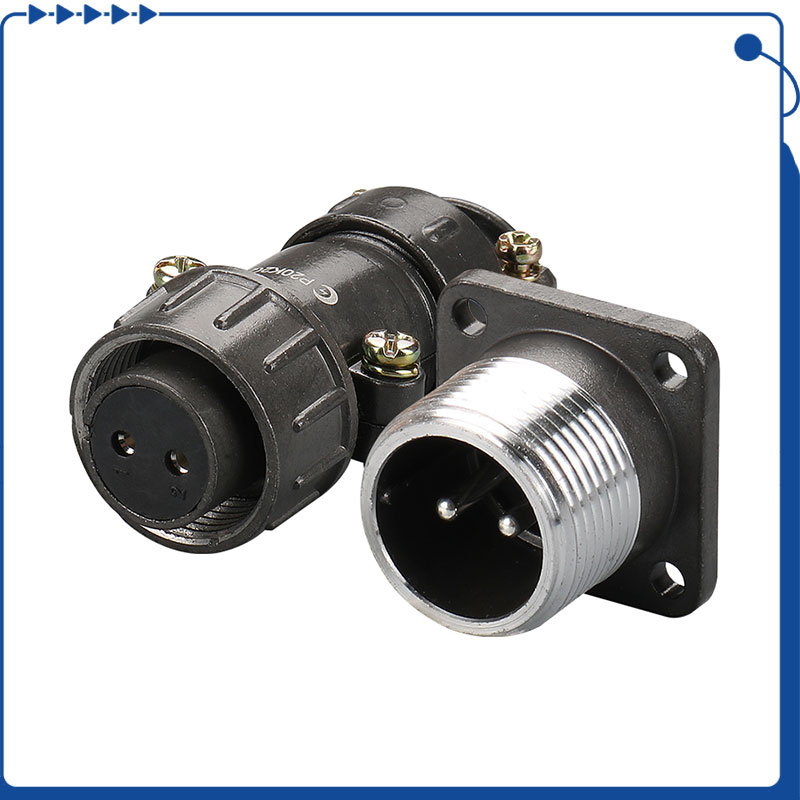Plastic Circular Connectors: Versatility and Durability for Modern Electronics
2025-04-10
In the world of electronics and electrical systems, connectors are essential components that ensure efficient and reliable transmission of data and power between different devices. Among the various types of connectors available, plastic circular connectors have become increasingly popular due to their versatile design, durability, and cost-effectiveness. These connectors are widely used in many industries, from automotive and telecommunications to medical devices and industrial equipment.
But what exactly are plastic circular connectors, and why are they so significant? Let’s dive into the details.
What Are Plastic Circular Connectors?
Plastic circular connectors are a type of electrical connector designed with a circular shape, typically made from durable plastic materials. They are used to join two or more electrical circuits together in a secure and stable manner, enabling the transmission of signals, power, or data. As the name suggests, their shape is round, which helps ensure proper alignment and a secure connection when mated.
These connectors consist of several components, including the outer housing, internal contacts (pins or sockets), and a locking mechanism that prevents the connector from coming loose during use. The plastic housing provides insulation and protection against environmental factors like moisture, dust, and chemicals, making them ideal for a wide range of applications.
Why Choose Plastic for Circular Connectors?
Plastic offers several advantages when it comes to the manufacturing of circular connectors:
1. Lightweight and Cost-Effective
Plastic is much lighter than metals like aluminum or steel, which makes plastic circular connectors ideal for applications where weight is a concern, such as in portable electronic devices, automotive wiring, and aerospace systems. Additionally, plastic is an affordable material, which makes these connectors a budget-friendly option for mass production.
2. Durability and Resistance
Plastic circular connectors are designed to withstand various environmental conditions. Many plastics used in these connectors are resistant to moisture, UV rays, and chemicals. They can endure temperature fluctuations and mechanical stress, which makes them suitable for outdoor and industrial environments.
3. Electrical Insulation
Plastic is an excellent insulator, which helps prevent electrical shorts or cross-contamination between circuits. This makes plastic circular connectors a safe choice in many electrical applications where reliable insulation is crucial.
4. Customization and Versatility
Plastic connectors can be easily molded into different shapes and sizes, allowing manufacturers to design connectors that meet specific needs. This adaptability makes them suitable for a variety of industries, from consumer electronics to complex industrial systems.
Applications of Plastic Circular Connectors
Plastic circular connectors are used in a broad range of industries due to their versatility and reliability. Here are some of the most common applications:
1. Automotive Industry
In modern vehicles, plastic circular connectors are used in numerous electrical systems, such as lighting, sensors, and power management systems. These connectors help ensure that the electrical systems in cars, trucks, and other vehicles operate efficiently, even under harsh conditions.
2. Telecommunications
Telecommunication devices like routers, antennas, and network cables rely on circular connectors to transmit data and signals. The plastic connectors offer reliable connections in both indoor and outdoor settings, ensuring that networks run smoothly without interference or signal loss.
3. Aerospace and Defense
The aerospace and defense sectors require connectors that are durable, reliable, and able to perform in extreme conditions. Plastic circular connectors are used in avionics, communication systems, and military equipment due to their ability to withstand vibration, high temperatures, and exposure to various chemicals.
4. Medical Devices
Medical equipment often requires connectors that are not only reliable but also easy to sterilize and resistant to chemical degradation. Plastic circular connectors are used in various medical devices, such as diagnostic machines, patient monitoring systems, and surgical instruments, where safety and durability are paramount.
5. Industrial and Manufacturing
In industrial settings, plastic circular connectors are used for connecting machinery, control systems, and power distribution units. These connectors are especially useful in environments where there is exposure to dust, moisture, and extreme temperatures.
Advantages of Plastic Circular Connectors
The widespread use of plastic circular connectors can be attributed to their numerous advantages:
1. Compact Design
The circular shape of these connectors makes them easy to design in a compact form, allowing them to fit into smaller spaces. This is particularly useful in applications where space is limited but reliable connections are still required.
2. Quick and Easy Assembly
Plastic circular connectors typically come with simple locking mechanisms that allow for easy assembly and disassembly. This feature is especially beneficial in systems that need to be maintained or repaired regularly.
3. Strong Mechanical Performance
Despite their lightweight nature, plastic circular connectors offer excellent mechanical performance, including resistance to vibration and shock. This makes them ideal for industries where movement or rough conditions are common, such as in automotive or aerospace systems.
4. Waterproof and Dustproof Options
Many plastic circular connectors are designed with sealing mechanisms to prevent the ingress of water, dust, and other contaminants. These sealed connectors are perfect for outdoor applications, ensuring that the electrical systems remain protected and functional even in challenging environments.
Choosing the Right Plastic Circular Connector
When selecting a plastic circular connector, it’s essential to consider several factors to ensure the right fit for your application. Key considerations include:
1. Current and Voltage Rating
Make sure the connector can handle the electrical load required for your system. Different connectors are rated for different current and voltage capacities, so choosing the right one is crucial for safety and performance.
2. Environmental Conditions
Consider the conditions the connector will be exposed to. If the connector needs to withstand extreme temperatures, moisture, or chemicals, make sure to choose one with the appropriate sealing and material properties.
3. Size and Configuration
Choose the right size and configuration to meet your space requirements and wiring needs. Plastic circular connectors come in various sizes, with different numbers of pins or sockets, allowing for flexibility in design.
4. Durability and Longevity
Evaluate the long-term reliability of the connector. For high-reliability applications, look for connectors that offer superior resistance to wear, vibration, and environmental stresses.
Conclusion
Plastic circular connectors offer a perfect balance of performance, cost-effectiveness, and versatility, making them a preferred choice for many industries. Their ability to provide reliable electrical connections while withstanding environmental challenges makes them essential components in automotive, telecommunications, aerospace, medical, and industrial applications. With a wide range of benefits, from lightweight design to resistance to harsh conditions, plastic circular connectors continue to play a vital role in modern technology and infrastructure.
As the demand for efficient and reliable connectors grows, plastic circular connectors will undoubtedly remain a popular solution in the evolving world of electronics and electrical systems.



